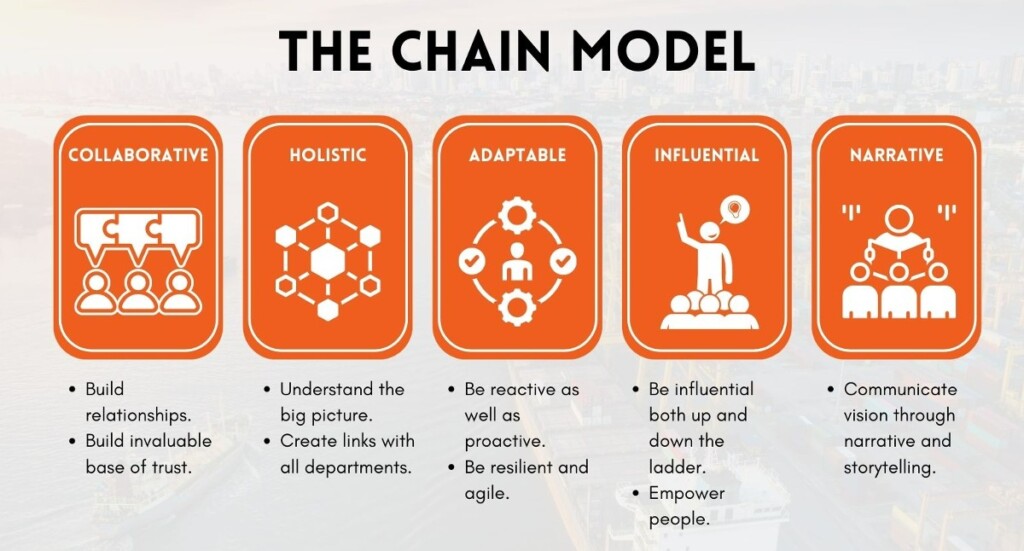“Supply chain leaders make things work. They get things done, but they don’t shine,” says Knut Alicke, McKinsey Partner and co-author of ‘From Source to Sold‘.
‘From Source to Sold’ contains a series of interviews with top Supply Chain leaders, showcasing the stories of their journeys to leadership positions. Knut’s research revealed that only 11% of CEOs in the Fortune 200 had a supply chain background, highlighting the untapped potential for supply chain professionals to reach top executive positions.
- For more book recommendations, checkout the PharmaSource Book Club
In the latest episode of the PharmaSource podcast, Knut explains why recognising and developing supply chain leadership is crucial for driving strategic growth and innovation in corporates.
Introducing the CHAIN model
He explains that the ‘CHAIN’ model was developed from the interviews. It is a framework for professionals looking to enhance their supply chain management skills and advance their careers.

Collaborative
Knut emphasises the significance of collaboration, both internally and externally. He shares an example of a company that involved key suppliers in their Sales and Operations Planning (S&OP) process:
“Why not involve the most important suppliers and share our planned production and our forecast for the next year, for the next two years, and then get their input?”
He recommends inviting key suppliers to your planning meetings to improve transparency and responsiveness in your supply chain.
Holistic
Supply chain leaders need to understand the big picture, as Knut explains:
“The only other function in a company that is going end to end is the CEO. Supply chain, by definition, is going end to end, so we need to really understand what is the big picture.”
Knut recommends supply chain team to understand all aspects of the business, from sales to suppliers, to make more informed decisions.
Adaptable
The pandemic highlighted the importance of adaptability in supply chains, says Knut. He shares an example of a company that secured freight capacity by working with their national airline to forge an alliance that meant they could fly in supplies.
He recommends regularly assessing your supply chain for potential disruptions and develop contingency plans to ensure adaptability.
Influential
Knut stresses the importance of empowering supply chain teams:
“To be influential is really to work with your people, with your team… empower people to make sure that you create something new, and I’m helping you, I’m endorsing you, I’m supporting you.”
In order to foster a culture of innovation and support within your supply chain team, create an environment that encourages new ideas and initiatives.
Narrative
One of the most crucial skills for supply chain leaders is the ability to tell the story of supply chain effectively, says Knut.
“If you think about the typical board meeting where supply chain is called in, often, the head of supply chain would come prepared with all the numbers but the Board does not understand. Instead, you need to tell the story. What does the data mean?”
He recommends that supply chain leaders focus on translating metrics into business impact, such as increased customer satisfaction or improved margins.
Knut also touches on the exciting potential of Generative AI in supply chain management. He believes it could “un-nerd” supply chain processes, making complex algorithms more accessible to non-technical users. He suggests that everyone should start to experiment with Large Language Models (LLMs) such as ChatGPT. “Start by inputing sanitised demand data, inventory data and forecasts and ask it to solve some problems.” he says.












 Stay ahead of trends and best practices
Stay ahead of trends and best practices
